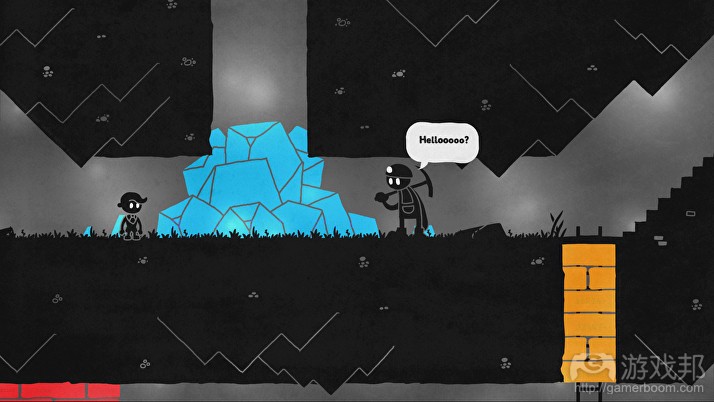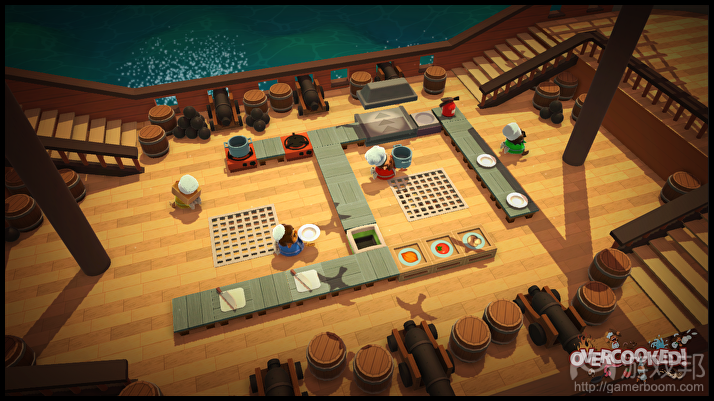访谈:发行商谈物色独立游戏关注的几大特征
本文原作者:Christopher Dring 译者:ciel chen
Jon Torrens上周写到了有关独立游戏者如何最好地销售他们的产品的内容,这周我们迈出了更远的一步,访问了出版商他们挑选游戏的标准是什么。下面是他们给我们的回答。
“我个人来说是探寻那些明亮的眼睛,能做出超乎寻常的,“一些特别的”以及“有感染力的”等等之类的游戏” 欧洲发行商Raw Fury的负责人Jonas Antonsson如是说。
“也就是说我想要开发者在谈论他的游戏时流露出的激情与热爱。那种深切的爱会告诉你,所有的小细节和所有难题都会被很好地解决,因为他们想做出一些了不起的东西。然后,我也希望开发者能在我们身上找到同样的特质。”
知道你游戏的潜在受众吗?
Do you know the potential audience for your game?
激情似乎是潜在投资者所看重的最重要的一个特质,但是那需要附上现实主义和深谋远虑的。
“要遇到对你的游戏有激情的,对市场有把握的以及以及能洞察潜在发行伙伴的真的是非常重要的。”Curve的发行总监Simon Bryon说道。
“知道能让消费者兴奋的游戏类型是无比重要的。市场正在进化,去年的流行游戏今年可能就不流行了。如果你的游戏是出于兴趣爱好,那很好,但是它需要有潜在受众。还有,不,照搬Steam Spy的热门游戏做出一个相似的游戏是不够的——如果你有了某个目标,要弄清当下的形势是否合适。
“随你所想地问发行商或者投资者问题,他们问你多少你就问他们多少——这表明让一款游戏取得成功是需要共同努力的。明白他们如何运作以及他们在资金支持以外还将提供什么服务。他们会分你多少?他们要如何支付?还有,悄悄地,做一些小调查——他们是否有良好的信誉?他们现下的开发者如何评价他们的?”
事实上,就像任何面试,发行商也需要在这些会面中证明自己。
“事前准备是至关重要的:想想你能和什么人一起共事?你为什么想和他们共事?他们可以在什么地方帮到你?还有别害怕,去问问你身边的同行朋友们,”Sold Out的老板Garry Williams这么说道。“有缓慢或根本没有进行支付的历史的发行商,是你在做会面安排的优先顺序时的一个重要线索。一个发展社区就在那儿,所以别害怕好好利用它。”
保持介绍的简洁也是在会面前需要尝试和改进的一个关键技巧。你想让发行商立马就能明白你的游戏,而你的游戏可能会是一个很复杂的概念。
Square Enix Collective的负责人Phill Elliott补充说道:“这款游戏是什么?你为什么做它?有时这有可能会花费一段长得惊人的时间,却只说清了关键的几点。我这里建议开发者们练习一下他们的介绍——找到一些好的词汇和台词来描述其种类,视觉风格,比较……无论什么,你要给我一个明确的表明让我马上知道你所构建的是什么。你这些台词练习得越多,你就越能脱口而出——并且这也是能够自信地开始一场会面的好方法,因为对一些开发者来说和出版商的会见真的会让他们很头疼。”
你能只用一句话解释你的游戏吗?
Can you explain your game in just a sentence?
事实上,事先做好准备是参加这些会面的关键。
“准备就是一切,”Williams 继续说。“你展现越多你思考过的东西,发行合作人对游戏的兴趣就有可能越大。请在做你的游戏设计文案的同时就把商务计划做好。商业模式和营销不应该是事后思量的事;他们应该从项目的一开始就在计划内。你正在做一个游戏,但是它需要具备商业可行性(可以赚钱),所以一个可靠的商务计划和交付计划就和游戏质量一样重要了。
“你需要创建以及表达你的计划。然后是设定你的宣传节奏以及你同目标受众的交流,或者根本没这些事。近来在数字产品方面,版权拥有者在推进后续DLC的发布。你可以应对这个吗?所需要的时间和代价是什么?你可以把它作为一个选项加入到初始版本里吗?”
当然了,最大最实际的问题时赴会时真正该带什么去。尽你所能地把游戏内容尽可能多地展现出来。你展示得越多,你越容易成功。
“能有一个demo交上去是最理想的了,但是一个视频或者pitch docuent也能起到同样效果,”Byron继续说。“无论你挑的是游戏的哪个方面,确保你能在进展过程中展示出一个清晰的计划,这个计划应该包括靠谱的资金计划和关于里程碑的好想法。”
Elliott 补充道:“你对最终质量和执行越有把握,我这边的风险认知就越低。如果你有一份作品的vertical slice,那很好——这让从直观上看清团队实力和交付能力变得容易。但是如果你只有概念设计,那可难多了。也不是不可能--但是你至少试着想出一些直观的东西让我看看你所想的游戏操作是什么样的。
Rising Star Games开发者联系部负责人Martin Mathers也同意:“面对面或者通过邮件,能获取我关注的概率是相同的:一个可玩性高,能显示大量你所做的内容的构建或者一个内容充实,能展示这个游戏的视频总是效果最好的。
Pitch docs很好,但是他们只是一些单词,而单词会在进展过程中变化……很难单靠它做到让开发商刮目相看的程度,尤其是像在Rezzed的展会上。而最终,你需要有热情,真诚以及对你正在做的事情有实际认识——如果你有些很棒的东西,那几乎它靠自己就能卖得出去……注意是‘几乎’”
一个发行商让开发者们记住,他们买单的原因不仅仅只是游戏本身。
“一个发行商会买一个团队的单更甚于买一个游戏概念的单,”KISS的发行负责人David Clark说。“别担心你是否有曾经开发过AAA级游戏的经历,只要你明白自己在做什么,对一切抱以虔诚之心,现实之感——时间线、成本、可玩性——可以参考《龙潭虎穴》(Dragons Den英国商业投资真人秀节目).
“在Steam2016展会上发行的游戏已经有5000多款了,今年的数字可能也是差不多的,那么为什么客户要投资的你的游戏而不是其他4999款中的一款呢?”
一个关于游戏运营的demo或者一段视频会让你成功的机会大很多
A demo or a video of your game running gives you a far better chance of success
第一印象很重要,能让发行商感你所感会让一切变得大不相同。
“为什么不在会面中随机应变问问发行商想要看到的是什么--预告片、可以玩的游戏、正式的文案?还是把它们全部都准备好随时能用,”Humble Bundle商务拓展负责人John Polson这么建议道。“发行商将因此有投入感,而你作为开发者将很快地学会如何最大化的利用你的短暂的会面时间。
“其他小贴士:练习让你的介绍在结束后还有时间空余。你和出版商都会喜闻乐见,这让你不会为下场会面迟到,或者不用突然中断这次对话。在一开始和最后透露一些很棒的东西,留下深刻的第一印象和最后印象。
William还说:“你是在被挑选。所以不可动摇的规则很重要。那就是别迟到,确定集合地,练习你的文案。礼貌真的也是有作用的,一句简单的“感谢您抽出宝贵的时间”在会面结尾真的会留下很久的印象。”
一些发行商甚至会在与游戏创作人说话的时候寻找一些特定的东西。Channel 4的游戏专员想看到的是:
“一个清晰的主题——能想出一句话的电梯游说就是确保达到效果的好方法,”他开始说道。“我想看到的是那些开发者们能充分利用自己的优势。这样做出来的游戏才对于目标受众才会是一个拟合度高的游戏。这样做出来的游戏才会是优秀的
与此同时,TEAM17的老板Debbie Bestwick想要的是:“焦点。要有目标,两年内你想到达到什么程度?你对此有什么计划?以及对游戏持续性的计划。我们会问这些因为我们在意你的长期目标。
“坚韧。确保你在潜在受众和竞争产品身上所做的功课,如果你不确定如何处理这个,我们可以帮你。”
“坦诚——各个层面上的——从作用域上、资源上还有所需要求上。记住,如果我们知道问题在哪,我们为你分担并且帮助你的,所以从一开始就要彼此坦诚相待,成为彼此出色的合作伙伴。
“决心——我想我们都清楚创作游戏的困难,而且我们也以此为生。我们想看到的合作伙伴是能从头到尾见证整个实施过程的,有聚焦点,有决心的。”
本文由游戏邦编译,译者ciel chen,转载请注明来源,或咨询游戏邦,微信zhengjintiao
What publishers look for in indie games
Road to Rezzed: We speak to several top indie games publishers to discuss why they pick the titles they do
Christopher Dring
Gamer Network
Later this month we are running an event at EGX Rezzed that unites indie creators with the wider games business.
This includes publishers, who will be looking to find the next big thing amongst the games being exhibited at the show.
‘Publisher pitching’ events are common place at most major events, even London Games Festival has its own in the form of the Game Finance Market. Yet they can be tricky affairs for both parties. Meetings often take place rapidly – sometimes as quick as ten minutes – in which developers have to convey their product to the publisher, leaving time for questions and feedback.
Communications coach Jon Torrens wrote last week about techniques for indies to best sell their product, and this week we’ve gone one step further and asked the publishers themselves what they’re looking for.
This is what they told us.
“I personally look for shiny eyes, on top of the normal – ‘something special’ and ‘emotional impact’, etcetera,” says Jonas Antonsson, head of European publisher Raw Fury.
“What I mean by that is enthusiasm and love that just oozes from the developer as he talks about his game. That deep love tells you that all the little details and all the tough things that are needed to make something glorious will be taken care of. And then I hope the developers see the same in us.”
Do you know the potential audience for your game?
Passion seems to be one of the single most important things that potential investors are looking for, but that needs to be combined with realism and foresight.
“It’s really important to come across as passionate about your game, knowledgeable about the market and wise about your potential publishing partner,” says Simon Byron, publishing director at Curve.
“Understanding the type of games which are exciting consumers is massively important. The market is evolving, and the games that were popular last year may not be popular now. If your game is a labour of love, that’s great – but it needs to have a potential audience. And, no, quoting headline Steam Spy figures for similar games is not enough – if you are getting specific with figures, make sure you know the context.
“Feel free to ask publishers or investors as many questions as they ask you – show that making the game a success is a joint effort. Understand how they operate and what services they will provide over and above any financial support. How will they account to you? How will they pay you? And, separately, do a little digging – do they have a good reputation? What do their current developers say about them?”
“One game we’ve recently signed put its six-word elevator pitch front and centre – we were already on board before we’d seen anything specific
Simon Byron, Curve
Indeed, like any interview, the publisher also needs to prove itself in these meetings.
“Preparation is vital; think about who you can work with? Why do you want to work with them? Where do you think they can best help you? And don’t be afraid to ask around your industry contacts,” says Sold Out boss Garry Williams. “A history of slow or no payments are clues you need to heed as you prioritise your meeting schedule. There really is a development community out there, so don’t be afraid to use it to your advantage.”
Keeping it simple is also a key skill to try and develop before attending these meetings. You want to get the publisher to understand your title immediately, and games can be complex ideas to get across.
“One game we’ve recently signed put its six-word elevator pitch front and centre – we were already on board before we’d seen anything specific,” continues Byron
Square Enix Collective head Phil Elliott adds: “What is the game? Why are you making it? It can sometimes take a surprisingly long time to get a clear understanding of just the main points. I generally advise people to practise their introduction – find some good words and lines that describe genre, visual style, comparisons… whatever it is that’s going to give me a good indication of what you’re building – right away. The more you practise those lines, the easier it’ll roll off the tongue – and it’s also a great way to start a meeting with confidence, since meeting publishers can be nerve-wracking for some.”
Can you explain your game in just a sentence?
Indeed, being prepared is the key to nailing these meetings.
“Planning is everything,” Williams continues. “The more you can show you have thought things through, the greater the interest from a publishing partner is likely to be. Please make a business plan at the same time you are making your game design document. Business models and marketing should not be an afterthought; they should be planned in from the very beginning of a project. You are making a game, but it needs to be commercially viable, so a solid business plan and delivery schedule is as important as the games’ quality.
“You need to create and to verbalise your plan. Then your publicity heartbeats and communication with your target audience need to be set, or they just won’t happen. Lately on the digital side, format holders are pushing to have follow-on DLC at launch. Can you handle this? What is the timeline and cost? Could you add it to your initial pitch as an option?”
Of course, the big practical question is what to actually bring to these meetings. The advice is clear – show as much of the game as you can. The more you can showcase, the more likely you are to succeed.
“Having a demo to hand is ideal, but a video or pitch document can work equally well,” continues Byron. “Whatever you pitch, make sure you also illustrate a clear plan through development, with solid financial planning and a sensible idea of milestones.”
Elliott adds: “The closer you have to the final quality or execution, the lower the perception of risk from my side. If you have a working vertical slice, great – easy to see the team competence, and ability to deliver on the vision. But if you only have concept art, that’s harder. Not impossible – but at least try to come up with something visual that shows me what you expect in-game action to look like.”
“Pitch docs are fine, but they’re just words and words can change over the course of development. It’s hard to make a publisher sit up and take notice on promises alone”
Martin Mathers, Rising Star Games
Martin Mathers, developer relations at Rising Star Games, concurs: “Face-to-face or via email, what gets my attention most is the same: a playable build that shows off a good chunk of what you’re doing or an extensive video demonstrating the gameplay always works best. Pitch docs are fine, but they’re just words and words can change over the course of development… it’s hard to make a publisher sit up and take notice on promises alone, especially in meetings like those at Rezzed. And ultimately, you need to be enthusiastic, honest and practical about what you’re doing – if you’ve got something great, then it’ll almost sell itself… almost.”
Remember, says one publisher, that it’s not just the games that they’re buying into.
“A publisher will buy in to a team quicker than a gaming concept,” says David Clark, head of publishing at KISS. “Don’t worry if you have not delivered three AAA games in the past, just come across as knowing your stuff, being believable and being realistic on everything - timelines, cost and gameplay – think Dragons Den.
“With 5,000 games having launched on Steam in 2016 and a similar number likely to do so this year, why should customers invest in your game and not one of the other 4,999 games?”
A demo or a video of your game running gives you a far better chance of success
First impressions count, and getting the publisher to feel engaged with you can make all the difference.
“Why not be adaptable and ask what the publisher wants to see during the meeting -trailer, game to play, formal pitch? Have them all ready to go,” suggest John Polson, business developer at Humble Bundle. “The publisher will feel engaged, and you as the developer will quickly learn how to make the most of your short meeting.
“Reveal something awesome at the beginning and end of your meeting, to make strong first and last impressions
John Polson, Humble Bundle
“Other tips: Practice and wrap up with a few minutes to spare. You and the publisher will be happy you are not running late to your next meeting or having to abruptly end the chat. Reveal something awesome at the beginning and end of your meeting, to make strong first and last impressions.”
Williams continues: “You are pitching to people. Hard and fast rules are important. Don’t be late. Be sure of the venue and practice your pitch. Politeness really does work a simple ‘Thank you for your time’ at the end of a meeting really does go a long way in creating an impression.”
Some publishers are even on the look out for specific things when they speak to creators. Channel 4′s Games Commissioner wants to see:
“A clear proposition – getting a one sentence elevator pitch down is a good way to ensure this,” he begins. “I want to see That developers are playing to their strengths. That the game is a good fit for the target audience. That there’ll be something remarkable about – read Seth Godin’s Purple Cow if in any doubt of the important of this. That the developers are being realistic with their ambitions, and likely to be able to do what they propose.”
“I think we all know that making games is difficult, and we do this for a living also. We like to see focused, determined partners who will see this process through to the end”
Debbie Bestwick, Team17
Meanwhile, the boss of Team17 Debbie Bestwick wants: “Focus. Having goals and where you want to be in 2 years? How do you plan to achieve it? And plan for sustainability. We care about your long term goals so we will ask.
“Diligence. Make sure you’ve done your homework on your potential audience and competing products, if you are unsure how to tackle this, we can help.”
“Honesty – at all levels – in terms of scope, resource, and requirements of what you need. Remember we will share your problems and help you if we know what they are, being honest and transparent from the start helps both sides achieve a great partnership.
“Determination – I think we all know that making games is difficult, and we do this for a living also. We like to see focused, determined partners who will see this process through to the end.”(source:gamesindustry.biz )









































 闽公网安备35020302001549号
闽公网安备35020302001549号